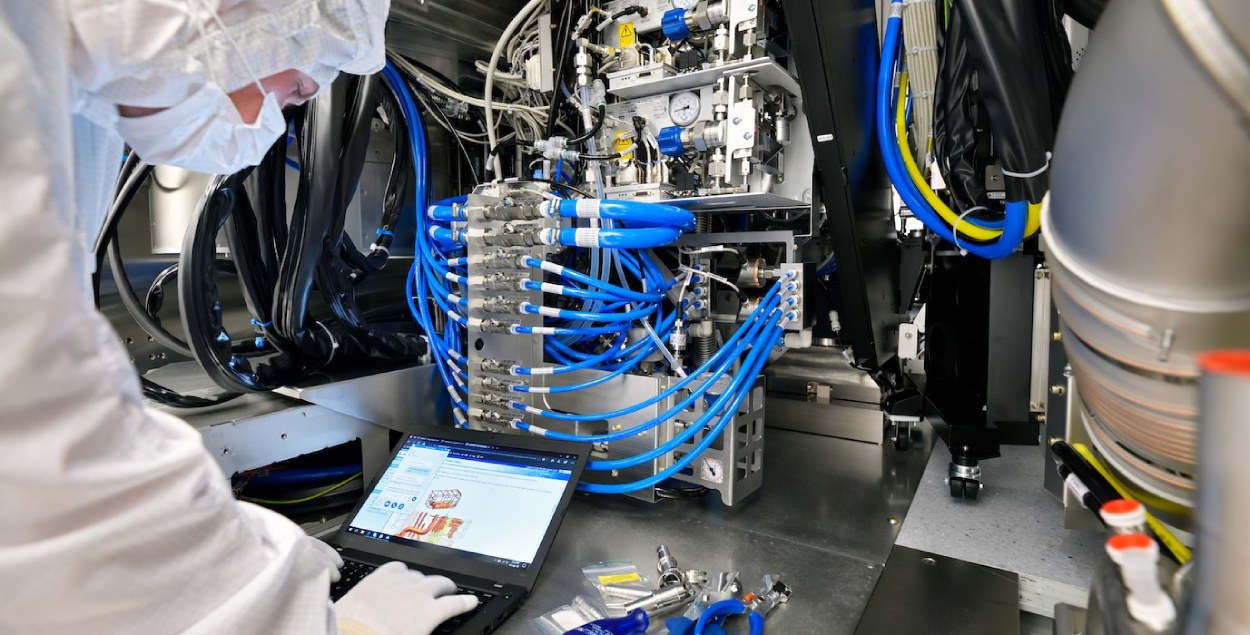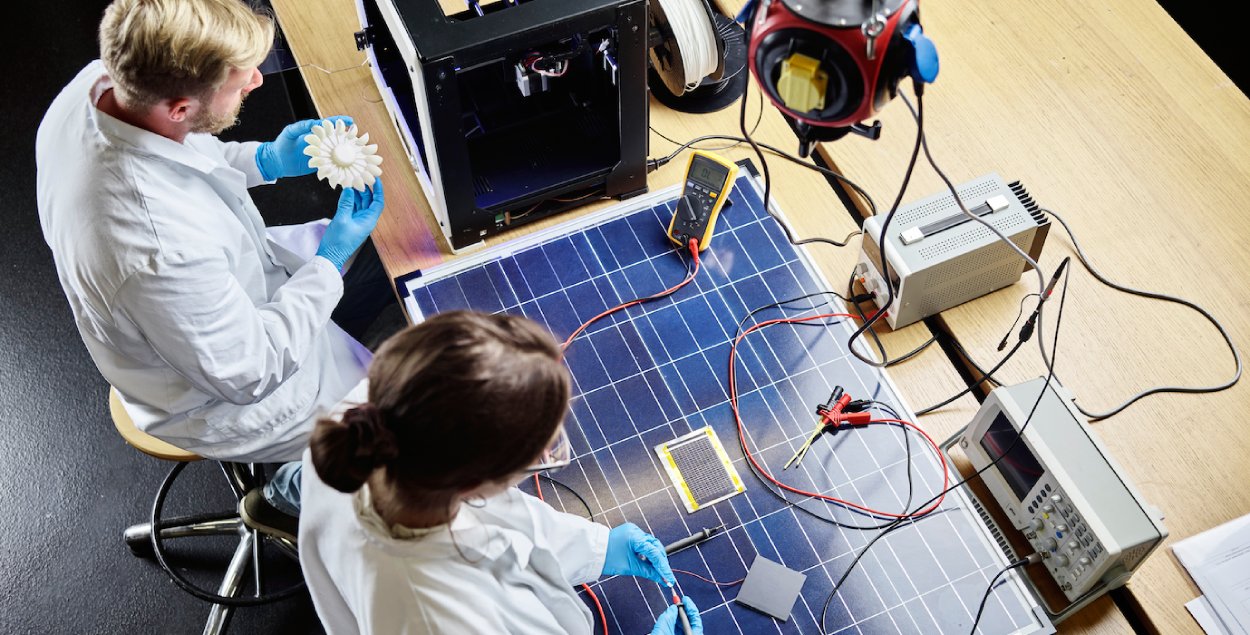High-tech systems
Quickly go to
- Our high-tech industries
- Research and development
- Continuous learning at FieldLabs
- Start your career in the Netherlands!

Contributing to our national high-tech successes are the many globally renowned original equipment manufacturers (OEMs) that call our country their home. Companies including Signify, TomTom, ASM, DAF, NXP, Tata Steel, and VDL design, develop and produce highly complex components in high-mix low-volume (HMLV) manufacturing. They are complemented by a wide range of startups and scale-ups in this sector to make up a diverse and prolific ecosystem. As of 2023, the Dutch high-tech industry comprises over 87,000 businesses employing nearly 500,000 people. Technologies they specialise in include robotics, automotive technology, semiconductor technology, quantum technology and photonics. Many other fields, such as health, mobility, food and safety, benefit from the achievements in the sector. New, innovative technologies further improve a wide range of products and processes, leading to new business models and even industries.
Most organisations and companies that deal with high-tech systems are concentrated in the Eindhoven region. Brainport Industries Campus is a forerunner in the market - its engineers are constantly succeeding in beating Moore’s law and defying physics boundaries. Leading the way in R&D are Philips and ASML, two brilliant companies both based in the Netherlands and both extremely focussed on bringing only the newest technologies to the table.
By proactively collaborating with cutting-edge R&D departments and various academic institutions, such as TNO (the Netherlands Organisation for Applied Scientific Research), Imec, Holst Centre, Solliance Solar Research, the Dutch Institute for Fundamental Energy Research (DIFFER), Eindhoven University of Technology (e/TU), Utrecht Science Park , Delft University of Technology (TU Delft), and the University of Twente , our high-tech industries are able to work on the frontier of what is manufacturable – continually inventing and developing technologies that change lives and facilitate a better future.
Since the impact of the high-tech systems and advanced manufacturing sector goes so far beyond its own industry, it’s crucial to invest in the development of technologies such as additive manufacturing, robotics, AR/VR, big data and analytics, and horizontal and vertical system integration. The Netherlands annually invests more than €4 billion in R&D. Many of the country’s most cutting-edge R&D facilities can be found at the High Tech Campus in Eindhoven, where more than 300 companies and institutes are concentrated and over 12.500 researchers, developers, and entrepreneurs work on product development and new technologies.

In addition to the Netherlands’ many research institutes and businesses working in high-tech systems and advanced manufacturing, there are so-called FieldLabs dotted across the country. FieldLabs are practical environments specialised in a wide variety of fields and aimed at creating smart, connected networks within supply chains to facilitate more efficient processes. The Dutch government and the EU heavily invest in these innovative labs to support the development of high-tech systems. Well-known FieldLabs in the Netherlands include the Brainport Industries Campus , the Flexible Manufacturing FieldLab , and the Duurzaamheidsfabriek (‘Sustainability Factory’).